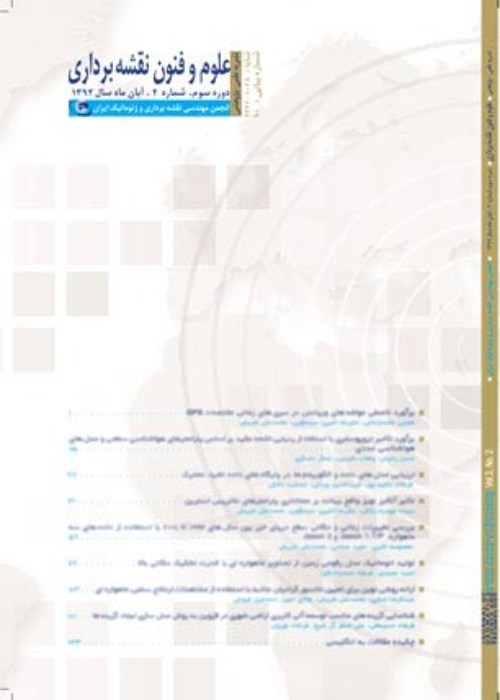Evaluation of Updating Methods in Building Blocks Dataset
With the increasing use of spatial data in daily life, the production of this data from diverse information sources with different precision and scales has grown widely. Generating new data requires a great deal of time and money. Therefore, one solution is to reduce costs is to update the old data at different scales using new data (produced on a similar scale). One approach to updating data is to use the updated large-scale dataset as reference data to update small-scale datasets; in this way, the modified features are identified in the two datasets and then updated by modifying the changes to fit the small-scale dataset. In terms of the type of the updated feature, map updating issues in the vector dataset are divided into three categories: pointwise, linear, and polygon. One of the most important features of the class of polygonal features in urban environments are the buildings that are vital in urban maps and their updating process in urban applications has a high priority. In this research, an attempt has been made to study the issue of updating polygonal features from different perspectives by a careful and comprehensive examination. These perspectives include spatial clustering methods, pattern extraction, and updating methods.
Spatial clustering methods are classified into five
natural principles, partition-based, graph-based, Region Merging, and density-based approaches. Each clustering method have been used in different studies according to Gestalt criteria (proximity, similarity, and continuity). In pattern extraction, different types of patterns have been studied in various studies while the linear pattern extraction as a sample has been comprehensively examined in this study. In the updating methods, three updating approaches including Propagating, Local, and Constraint-based are examined. In the Propagation updating approach, only large-scale data are updated, then these updates can be propagated into small-scale data. This update is especially used for the MRDB spatial database by propagating updates at various scales. Local updating consists of three steps: 1) Change detection between the recently updated large-scale dataset and the old small-scale dataset. 2) Integrating the discovered changes into the small-scale dataset (by quantifying and formulating these changes). 3) Ensuring that the consistency is maintained. In Constraint-based updating approach which demonstrates the necessities of this research, first, by grouping the buildings, useful information such as the area of the buildings, the average and the standard deviation of the separation distance between the buildings is obtained. Then, with the appropriate operators, Constraint-based generalization is performed to update the maps. There are various criteria for evaluating the updating methods, while the Precision and Recall criteria have been used to evaluate the effectiveness of these problems. Precision criterion examines the ratio of the number of correctly matched features to the total number of features that that have been matched correctly or incorrectly. Recall criterion evaluates the ratio of correctly matched features to the total features that have been matched correctly or not matched. In other words, in the Precision criterion, the number of features that are incorrectly matched and in the Recall criterion, the number of features that are not matched, are effective in comparing the two criteria. The categorization mentioned in each perspective and the advantages and disadvantages of different methods are also presented in this research.
- حق عضویت دریافتی صرف حمایت از نشریات عضو و نگهداری، تکمیل و توسعه مگیران میشود.
- پرداخت حق اشتراک و دانلود مقالات اجازه بازنشر آن در سایر رسانههای چاپی و دیجیتال را به کاربر نمیدهد.


